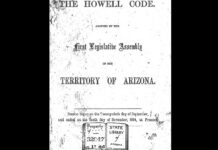It’s a topic that has been on the minds of many in the Sedona area for the last several years and doesn’t seem to be going away any time soon.
The topic du jour of the Sedona Lodging Council meeting Tuesday, May 11, centered around short-term vacation rentals and the impact they are having on the housing market — both for purchase and rent — as well as the increase in traffic.
Sedona Chamber President and CEO Candace Carr Strauss kicked off the meeting by saying traditional lodging has been down or flat since January 2020. Yet, this has been the highest grossing fiscal year through sales and bed tax that the city has ever seen.
“What’s that a result of?” she asked. “It’s a result of the 2,500-plus room hotel that was unleashed upon Sedona after the governor’s deregulation of short-term vacation rentals in 2017.
“The good message here is that in spite of bringing in less people, which in this instance less is more, the ADR [average daily rate] has increased during the pandemic. We’re bringing less people here to traditional lodging rooms who are willing to pay more money to be here.”
For example, comparing March 2019 to March 2021 — 2020 was not used for comparison because the COVID-19 pandemic skewed the numbers — Strauss said hotel occupancy is down 6.3%, but average daily rates are up 18.5%.
Current statistics show that in the Sedona area, which includes the Village of Oak Creek and Oak Creek Canyon, there are 1,238 vacation rentals.
“The consensus is, we haven’t brought in more people within the hotel industry, but we have traffic,” Lodging Council President Steve Segner said. “Obviously, it’s coming from somewhere. There’s a lot of confusion around. People in town think there’s a simple solutions to complicated problems. It’s easy to point fingers on a very complicated issue.”
Sedona Mayor Sandy Moriarty started her portion by reading a letter from Sedona City Attorney Kurt Christianson. It addressed Senate Bill 1350, which was signed by Arizona Gov. Doug Ducey in 2016. The letter also touched on 2006’s Proposition 207 the “Private Property Rights Protection Act,” and how each effects the city when enforcing any new or existing ordinances involving short-term rentals.
“Any proposed changes to SB 1350, that removed city regulatory authority for STRs, have ‘grandfathered’ existing STR operators,” Christianson’s letter read. “Meaning that if any of the proposed legislation would have passed, it would have merely allowed the city to cap the current number of STRs, not remove any currently operating STRs. This is really just a function of how zoning changes work. Any existing, approved use prior to the new zoning ordinance taking effect becomes a legal nonconforming use.
“Prop 207,” Christianson’s letter read, “requires the city to pay for any diminution in fair market value that occurs because of a city regulation or zoning change. Currently, STRs are allowed in any residential zone. If the city were allowed to change that, and again limit or restrict the number of STRs in a residential zone, property owners would have up to two years to file a claim against the city alleging a reduction in the value of their property because of that change. The property owner would have to prove the decrease in value. The city would then have to either omit application of the STR restriction to that individual property — in the form of a permanent waiver that runs with the land — or pay for the diminution in value.”
His letter concluded by stating, “As you know, even if the state legislature were to return some regulatory control to municipalities, there would be no quick, easy or inexpensive path for cities to reduce the number of STRs from their current levels.”
Moriarty said Sedona banned short-term rentals in 1995 and then a 2008 ordinance made it a misdemeanor to rent out a home for less than 30 days. Then in 2016, Senate Bill 1350 made it illegal for cities to ban the practice of STRs effective Jan. 1, 2017, nullifying the city ordinance.
“That means we had to undo ours,” she said of the city ordinance. “Around that same time, the legislature passed another law [Senate Bill 1487] that a city can’t create any law or ordinance that is against state law. If they do, any legislator within the state can report them to the Attorney General, who has 30 days to investigate. If the Attorney General finds we are violating state law, they can reduce our share of state-shared revenues.”
SB 1487 also prevented the city from requiring short-term vacation rental owners to obtain a business license. The city attempted to, but a 1487 complaint was filed against Sedona and the AG’s office said the city could not require one and that short-term and long-term rentals must be treated the same in the eyes of the city.





















